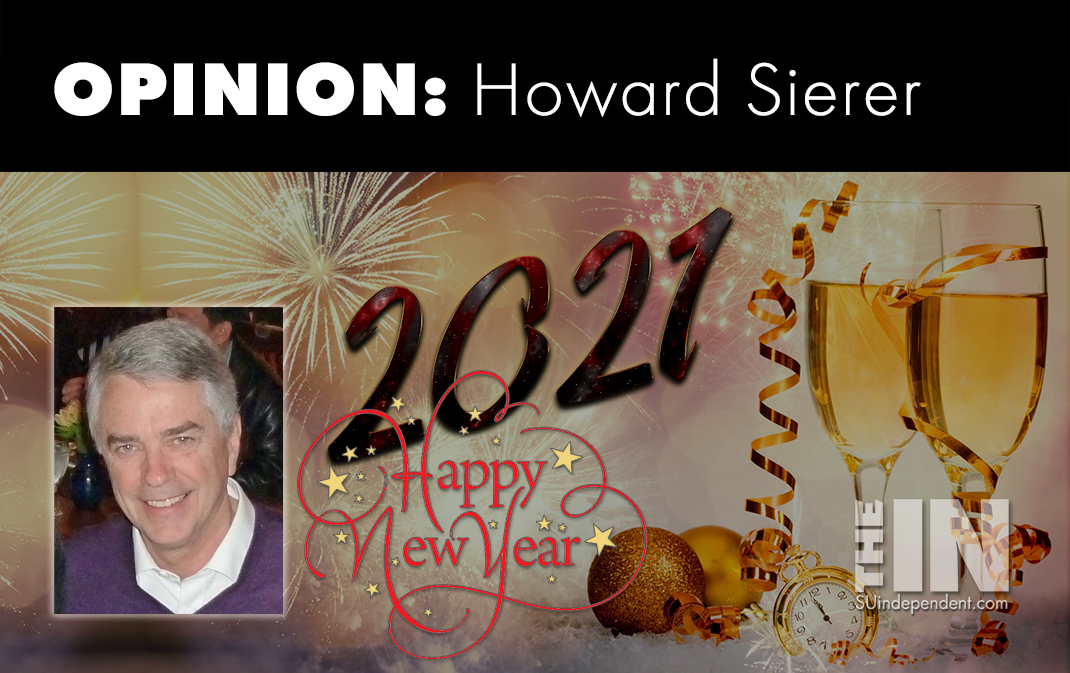
Free Enterprise at Risk in St. George
“I disapprove of what you say, but I will defend to the death your right to say it.” This famous quote is attributed to the French philosopher Voltaire.
I have never been in a bar in St. George (and don’t intend to start), but I will defend (but not to the death) the right of entrepreneurs to open a bar without the City Council deciding whether there’s a demand for it. Recently, the council displayed an attitude that smacks of socialist central planning where government officials rather than consumers decide which products and services will be provided.
In November, the council reduced the number of bars it would allow in the city’s 10-square-block “arts district” from six to four, with the stated purpose of keeping the area family-friendly. Mayor Jon Pike explained, “This is a historical area. We want to ensure that families feel comfortable bringing their kids to visit the museums, galleries, and other restaurants there.”
This is a legitimate government objective, analogous to zoning ordinances that prevent your next-door neighbors from converting their house into a 24-hour convenience store. We elect city council members to exercise their discretion in matters like this and I support their family-friendly objective. Those who disagree can vote for a new mayor and council, in coming municipal elections.
But supporters of free-enterprise economies should be stunned by the other reason the council gave for the proposed reduction: a lack of confidence in free markets.
Pike summed it up: “We don’t really know if the demand is there for more bars; we felt that it would be best to limit the number of new bars until we have a better idea of what’s best for the establishments that are there already,” noting that there are two bars in the area with a third in the process.
Translation: We at the city want to second guess entrepreneurs’ judgment, even though it’s their money that’s at risk. An even more cynical interpretation: It’s the city’s job to protect existing businesses from competition.
Thank goodness this mindset wasn’t in vogue when Costco, Walmart, Home Depot and Lowe’s came seeking permits.
If the council is serious about second-guessing demand for business products and services, why shouldn’t it determine how many fast-food outlets or dentists St. George needs? It could also protect our health by following the lead of New York City’s socialist city council in limiting the size of obesity-causing soda fountain drinks or outlawing “super-sized” fast-food meals.
Who believes that our council members should substitute their opinions for those of consumers about which otherwise-legal products and services are wanted?
Relying on the council’s new four-bar limit in the arts district, a pair of local entrepreneurs applied to the city for a conditional use permit to open a bar in downtown St. George’s Ancestor Square, in heart of the arts district.
The applicants for this fourth bar had every reason to expect an okay from the council. The city’s planning commission had recommended approval and the city attorney advised that there was no legal basis to deny the request.
Nonetheless, at its December 3rd meeting, the council took the highly unusual step of tabling the issue after a motion to approve didn’t receive a second.
The discussion about the proposed bar prior to the motion centered on parking. Huh? Worrying about adequate parking implied that the council was anticipating a substantial number of patrons for this new bar despite the mayor’s November statement questioning demand.
Would parking have been the primary topic of discussion if a permit for a hot dog stand or a clothing store was under consideration? I doubt it.
Instead, it’s apparent that the other four council members had second thoughts about even the recently-approved maximum of four bars but needed time to work out a compromise.
That compromise was unveiled at the council’s December 17th meeting. The fourth bar was approved (subject to the entrepreneurs obtaining a state liquor license) but a new limit of two bars in the “arts district” was adopted. The approved four will be grandfathered but should one or two fail, no new bar would be allowed to replace them.
Solomon himself would have approved of this solution.
Economist Joseph Schumpeter described free markets as a process of “creative destruction,” competition between privately-owned businesses that continually replace older modes of commerce with superior new ones selected not by government officials but by consumer demand.
Two bars are two more than I will ever visit. Nonetheless, I suggest that our council take a refresher course on Schumpeter and free markets here.
Viewpoints and perspectives expressed throughout The Independent are those of the individual contributors. They do not necessarily reflect those held by the staff of The Independent or our advertising sponsors. Your comments, rebuttals, and contributions are welcome in accordance with our Terms of Service. Please be respectful and abide by our Community Rules. If you have privacy concerns you can view our Privacy Policy here. Thank you!
Click here to submit an article, guest opinion piece, or a Letter to the Editor





This is the only time I have ever agreed with Mr. Sierer.
Yup – and I could see this article being written by Dallas Hyland back in the day. The differences would be few, except Dallas would have added a religious dimension or two with a historical narrative of interest to fascinate the reader. Alas Voltaire was French, and religious liberty counts for something in the Footloose land of good ole Dixie politics.